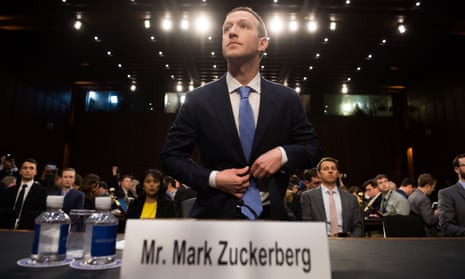Facebook has said Mark Zuckerberg has no plans to come to the UK to give evidence to parliament despite the threat of a formal summons, prompting frustrated MPs inquiring into the Cambridge Analytica data breach to ask if he would appear via video link instead.
The social network said it recognised “the seriousness of these issues” and provided written answers to 39 questions posed by the MPs, who had argued that the oral evidence of the chief technology officer sent in lieu of Zuckerberg last month was insufficient.
Damian Collins, the Conservative chair of the digital culture media and sport select committee, said: “If Mark Zuckerberg truly recognises the ‘seriousness’ of these issues as they say they do, we would have expected that he would want to appear.
“Although Facebook says Mr Zuckerberg has no plans to travel to the UK, we would also be open to taking his evidence by video link, if that would be the only way to do this.”
The MPs intend to maintain the threat of issuing a formal summons to Zuckerberg, the Facebook founder and chief executive, while they hope he can be persuaded to appear. They also indicated they would study the company’s response to their questions as they weighed up what to do next.
Select committees rarely formally summon witnesses to appear, but the move has been successful in persuading another US-based chief executive to give evidence in the past.
Rupert Murdoch and his son James were formally summoned by the same committee in the summer of 2011, after the two men had initially indicated they would not answer questions about phone hacking at the News of the World. Once the committee issued a formal summons, the duo relented, and chose to appear.
However, in practice, the committee has no power to force a person to give evidence if they are based abroad, as Zuckerberg is. It is theoretically up to the Commons to decide what sanction if a person breaches the summons, although historical powers to jail and fine have long considered to be in abeyance.
Facebook’s 18-page letter states that the first Zuckerberg knew about allegations that Cambridge Analytica may not have deleted data harvested from Facebook users was in March 2018 “when these issues were raised in the media” by the Guardian and other publications.
Last month Facebook sent its chief technology officer Mike Schroepfer to give evidence before the select committee. He was rebuked by Ian Lucas, a Labour member, who complained that he could not spell out what Zuckerberg knew and when and whether previous testimony given by the company relating to the data breach in February was accurate.
Facebook also said that it had found that Aggregate IQ, a little known Canadian technology firm, spent $1.6m on Facebook adverts on behalf of Vote Leave, and a further $329,000 with BeLeave, a youth campaign that Vote Leave is alleged to have colluded with. A further $51,500 was spent with Veterans for Britain, another pro-Brexit group and $32,700 with the DUP’s Vote to Leave campaign.
Aggregate IQ, which has been effectively described as the Canadian arm of Cambridge Analytica’s parent SCL Group, is due to give evidence on Wednesday.
